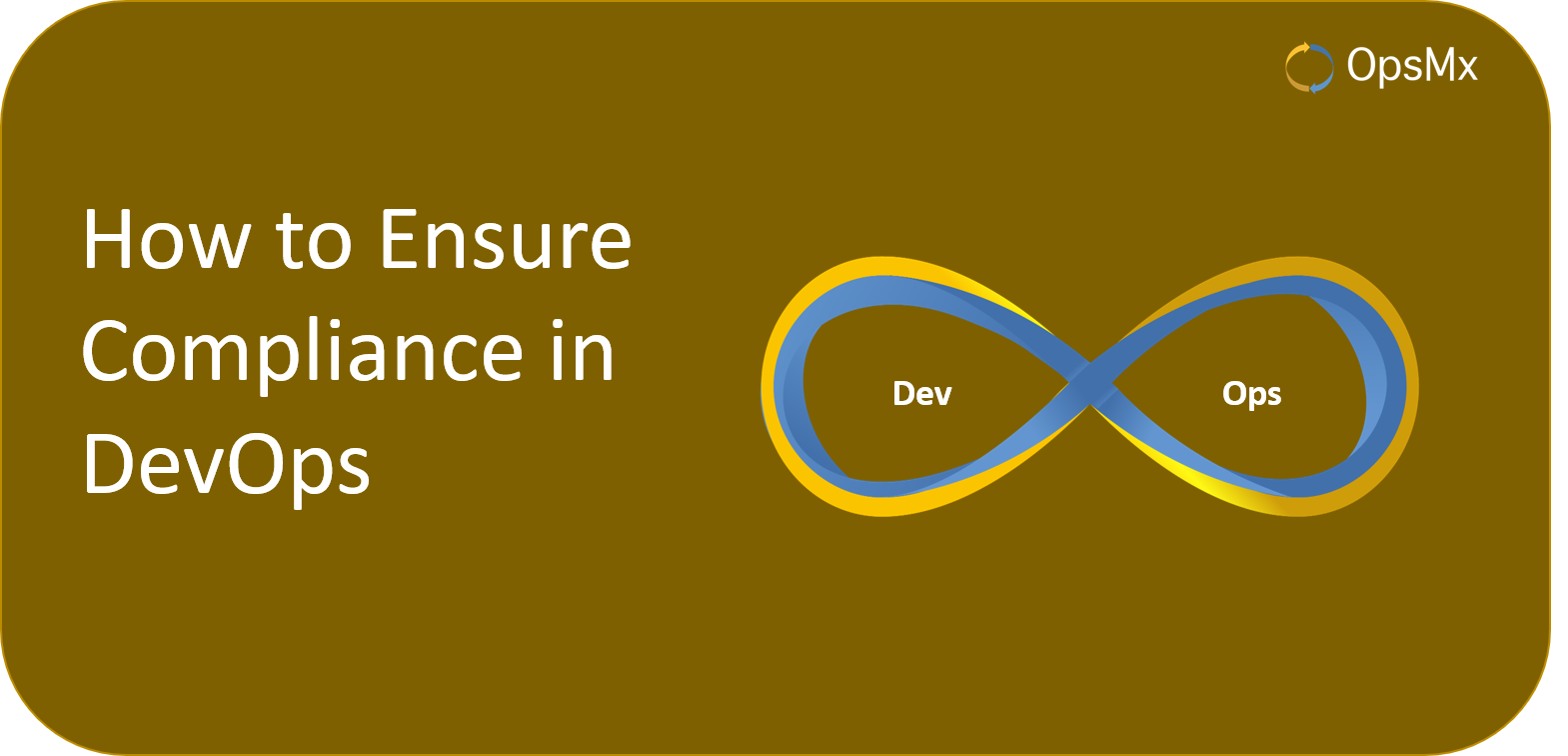How to Ensure Compliance in DevOps
Fostering DevOps culture and realizing the culture with established CI/CD pipelines has been the central part of the modern software lifecycle. DevOps team now engages in developing and deploying cloud-native applications continuously. The velocity of software delivery has increased, but one question that DevOps and the compliance team mull over is about the sustainability of the speed. Are the software delivery pipelines compliant with governance policies and industry standards? Because non-adherence will lead to unnecessary fines and a burden on the books of account. For instance, Regulators reprimanded Citi Bank $400M for falling short of risk management, data management, and regulatory reporting.
What is Compliance in DevOps, and Why is it important?
Organizations frame compliance rules to meet regulatory requirements such as HIPAA, SOX, GDPR, etc.
DevOps and Compliance managers ensure there aren’t any compliance problems from disorderly development workflows. A quick snapshot of compliance rules in DevOps is- through proper function and performance testing before releasing into production, or authorized persons can only do deployment of a software release into production.
In case of violations, the losses can be damage to reputation and business.
As the current speed of software release has increased, there is a high chance a new release with some potential threats will likely go unnoticed. Sometimes, compliance managers enforce policies at the end of the deployment process. However, the cost of an issue at the end of software delivery is very high.
Thus with growing deployment frequency, the enterprise should:
- shift compliance to the left of the DevOps process
- perform frequent audit trails
- use more guards and guardrails to avoid unwanted releases and unauthorized rollouts
- seek higher collaboration between DevOps and compliance & audit team
Challenges while ensuring Compliance and Audit in DevOps process
Every department- Finance reporting/ regulatory controls/ data privacy/ vendor management/IT- rely on compliance and audit team. Compliance managers and auditors work relentlessly to make sure internal processes comply with standards like SOX, HIPAA, GDPR, etc. Though compliance managers and auditors work behind the veil, a small mishap related to compliance failure can become a news headline.
Compliance and Audit managers often prepare policy plans manually. With rising microservices to hundreds and thousands and the adoption of DevOps practice, handling compliance & risk exposure manually is not sufficient and scalable.
Following are the challenges faced by compliance managers with the speed of software delivery:
- Since compliance managers handle policies in the form of documents, any Policy change at an organization level makes it difficult for them to propagate the changes to an existing process in real-time due to the plethora of documentation and siloed operation mode.
- Policy checks are usually carried out manually, tiresome, and not scalable, especially when there are numerous microservices and pipelines.
- any non-adherence of policy or accidental mistakes like unauthorized person deploying a change or deploying application during peak hours can cause damage to the company’s top line
- With Continuous Delivery, enterprises deploy almost thousands of changes per week. Compliance managers find it hard to keep up with the pace.
With the pace of software development and delivery, organizations must introduce automation to handle various compliance or policy rules.
How to ensure compliance in DevOps with OpsMx Enterprise for Spinnaker
OpsMx Enterprise for Spinnaker features Continuous Compliance and Audit. OpsMx Enterprise for Spinnaker (OES) allows you to define policies in your software delivery pipeline. You can ensure your DevOps process complies with industry standards and organizational policies while shipping your code, upgrades, and application to production quickly. In addition to that, you can now quickly identify the who/what/when/where of delivery pipelines through audit reports and traces.
OES allows compliance managers to create policies and enforce them in each stage of the software lifecycle- Build, Test, and Deploy.
OES offers the following critical capabilities for compliance and policy managers and auditors-
- Create Pipeline Runtime Policies: to check various software release parameters and deployment conditions before executing a pipeline.
- Pipeline policy management: to define the principles of creating, modifying, and deleting a pipeline
- Auditing: single and unified view of deployment pipeline wrt to other parameters such as application, status, start and end time of execution, etc.
- Consolidated statement of pipelines and policy execution: to highlight if a particular policy has been invoked in specific pipeline execution, to make sure the DevOps process is running securely and meeting all compliance regulations
Watch how to ensure compliance and audit using OES
Benefits of automating for Compliance and Audit in your DevOps Process
- 24*7 assurance of DevOps process being compliant
- 50% rise in productivity in enforcing, changing, and modifying policies around the DevOps process.
- 80% reduction in manual effort to gather documents for auditing purposes.
- Rise in developer’s confidence in not introducing any production problems.
- Enhanced Visibility and Traceability: Real-time visibility into compliance activities gives compliance managers and auditors instant information. Auditors also get to trace and prioritize non-compliant activities for improvements.
If you want to know more about OpsMx Enterprise for Spinnaker or request a demonstration, please book a meeting with us.
OpsMx is a leading provider of Continuous Delivery solutions that help enterprises safely deliver software at scale and without any human intervention. We help engineering teams take the risk and manual effort out of releasing innovations at the speed of modern business. For additional information, contact us
